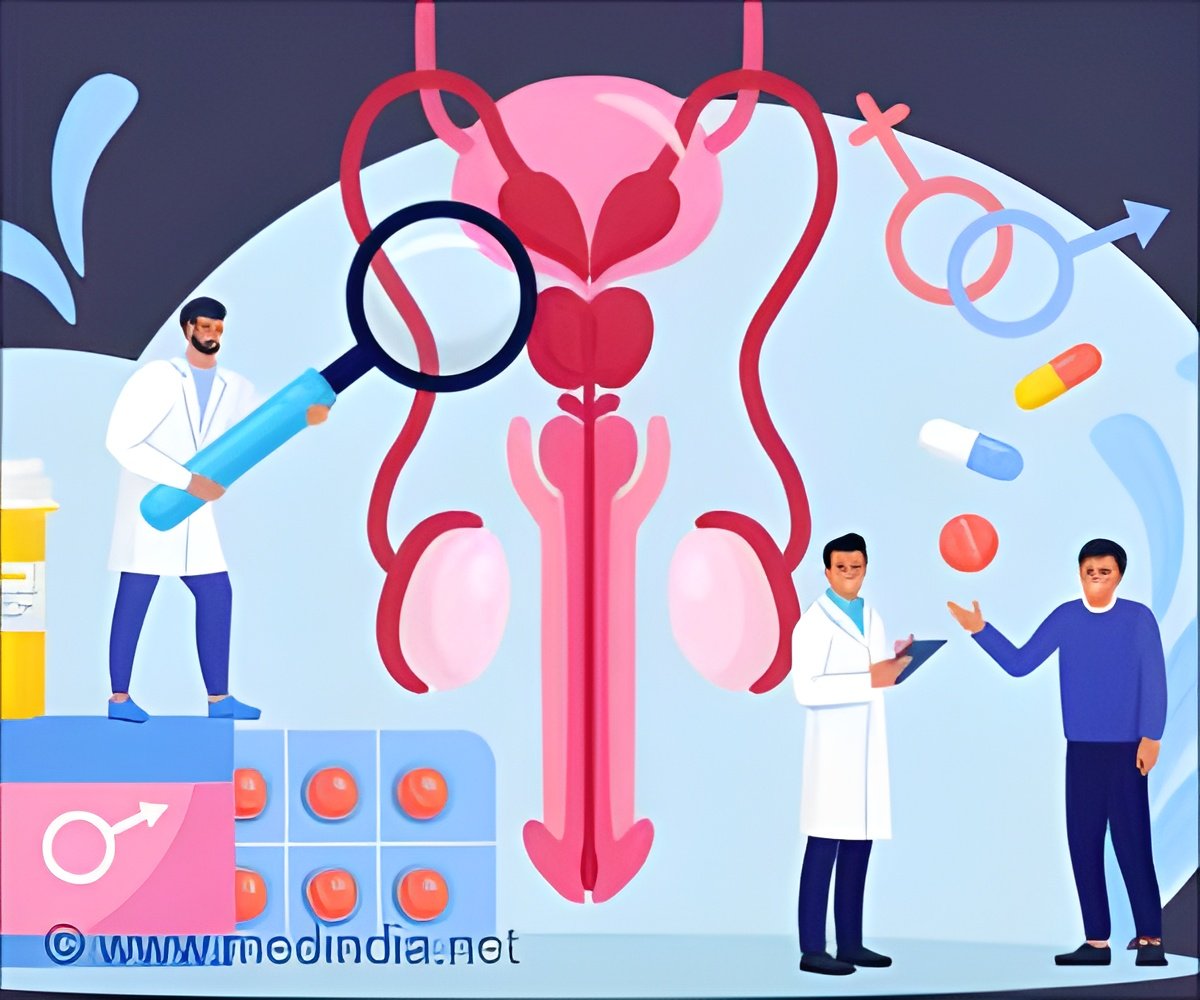The use of Doxycycline, to prevent sexually transmitted diseases, affects the gut bacteria and makes them resistant to tetracycline.

Impact of doxycycline post-exposure prophylaxis for sexually transmitted infections on the gut microbiome and antimicrobial resistome
Go to source). The newly introduced strategy, referred to as doxycycline post-exposure prophylaxis (doxy PEP), demonstrates considerable effectiveness. However, it may carry certain risks, particularly with prolonged usage. Experts express concerns regarding the potential effects on the community of gut bacteria, or microbiome, and the possibility that the antibiotic could develop antibiotic-resistant bacterial strains.
TOP INSIGHT
Did You Know?
Every day, over 1 million curable sexually transmitted infections (STIs) are contracted globally among individuals aged 15 to 49, with a significant portion of these infections being asymptomatic. #doxycycline #gutmicrobiome #medindia
Doxy-PEP had little effect on the overall gastrointestinal bacterial communities. However, researchers noticed indications of developing resistance to tetracycline, the antibiotic class to which doxycycline belongs, potentially reducing its efficacy.
The research is published in the journal Nature Medicine on October 3.
“While doxy-PEP did not appear to have global impacts on the gut microbiome, it did have impacts on the antimicrobial resistance of gut bacteria, both in terms of the proportion of tetracycline class resistance genes and the amount that were turned on, or expressed,” said Chaz Langelier, M.D, Ph.D., an associate professor of medicine in UCSF’s Division of Infectious Diseases and senior author of the paper. “So, it's not totally innocuous.”
Role of Doxycycline in Preventing Sexually Transmitted Disease
Doxy-PEP is short for doxycycline post-exposure prophylaxis, and it involves taking two 100-milligram pills within 72 hours of condomless sex.Prompted by early promising clinical trial results, San Francisco became the first city in the country in October of 2022 to recommend doxy-PEP to gay and bisexual men and transgender women with a history of having unprotected encounters with multiple partners.
In March of 2024, the San Francisco Department of Public Health released results showing that after about a year, the approach halved the incidence of chlamydia and early syphilis. In June, the U.S. Centers for Disease Control and Prevention (CDC) issued guidelines recommending doxy-PEP for these groups. It was the first new STI prevention tool to be adopted in decades.
Doxycycline Causes Resistance of Gut Bacteria to Tetracycline
However, the widespread use of antibiotics raises concerns about resistance and the potential harmful impact on gut health, specifically the balance of bacteria and other microbes. Disruption can lead to diarrhea, nausea, fever, and abdominal pain; and until now, there has been very limited research into these side effects.Working with the Chan Zuckerberg Biohub and scientists in Washington and Georgia, UCSF researchers studied participants from the recent doxy-PEP clinical trial in San Francisco and Seattle, led by Annie Luetkemeyer, M.D, a professor of medicine in the Division of Infectious Diseases at UCSF.
The study included 100 individuals who used doxy-PEP and 50 individuals who received standard-of-care and did not use doxy-PEP. Researchers analyzed rectal swabs collected at enrolment and after six months to study the presence of DNA and RNA from gut bacteria and their antibiotic-resistance genes.
“While we found no major changes to the community of gut bacteria in doxy-PEP users, we saw that doxy-PEP users over time had increasing amounts of tetracycline resistance genes present in their gut,” said Victoria T. Chu, MD, MPH, an assistant professor of pediatrics in the Division of Global Health and Infectious Diseases at UCSF and a first author of the study. “It also appeared to be dose-dependent, meaning the more doxy-PEP they used, the larger the increase was.”
More research is needed to determine which gut bacteria are turning on these tetracycline-resistant genes to know whether this will lead to more doxycycline-resistant infections among both individuals taking doxy-PEP and in the greater community.
“Right now, it looks like the pros outweigh the cons,” Langelier said. “Especially given the dramatic rise in STIs, in particular syphilis, over the past decade.”
Reference:
- Impact of doxycycline post-exposure prophylaxis for sexually transmitted infections on the gut microbiome and antimicrobial resistome - (https://www.nature.com/articles/s41591-024-03274-2)
Source-Eurekalert
 MEDINDIA
MEDINDIA


 Email
Email







